Similar presentations:
American literature
1. AMERICAN LITERATURE
2. American literature is the literature written or produced in the area of the United States and its preceding colonies
3. The roots of American literature
LECTURE 1The roots of
American
literature
4.
AL beginswith the orally transmitted
myths
legends
tales
lyrics
(always songs)
of Indian cultures
5.
There was no written literatureamong the more than 500 different Indian
languages and tribal cultures
that existed in North America
before the first
European arrived
6.
American oral literatureis quite diverse.
Though it is possible to make a
few generalizations.
7.
1. Indian stories grow withreverence for nature as a spiritual
as well as physical mother.
8.
1. nature9.
2. Nature is alive and endowedwith spiritual forces.
10.
2. spiritual forces11.
3. Main characters may beanimals, or plants, often totems
associated with a tribe, group, or
individual
12.
3. characters – animals, plants13.
Examples of almost every oralgenre can be found in American
Indian literature
14.
lyrics,chants,
myths,
fairy tales,
humorous anecdotes,
incantations,
riddles, proverbs,
epics,
legendary histories
15.
Do you know all the genres?16.
Lyricsare a set of words that make up
a song, usually consisting of
verses and choruses
17.
A chantis the rhythmic speaking or singing
of words or sounds. Chanting is a
commonly used spiritual practice.
Like prayer, chant may be a
component of either personal or
group practice.
18.
A mythis a traditional, typically ancient
story dealing with supernatural
beings, ancestors, or heroes that
serves as a fundamental type
explaining aspects of the natural
world or delineating the psychology,
customs, or ideals of society
19.
A fairy talea story (as for children) involving
fantastic forces and beings
(as fairies, wizards, goblins, etc.)
a story in which improbable events
lead to a happy ending
20.
An anecdoteis a short and amusing but serious
account, which may depict a
real/fake incident or character.
An anecdote is always presented as
based in a real incident involving
actual persons, whether famous or
not, usually in an identifiable place.
21.
An incantationis a formula used in ritual
recitation;
a verbal charm or spell.
22.
A riddleis a question, puzzle, or verse so
phrased that ingenuity is required
for elucidation of the answer or
meaning
23.
A proverbis a short popular saying of
unknown and ancient origin, that
expresses effectively some
commonplace truth or useful
thought
24.
An epicis a long narrative poem usually
concerning a central character of
heroic stature, or incidents of
national or tribal importance
25.
A legendary historyis a narrative of human actions that
are perceived both by teller and
listeners to take place within
human history and to possess
certain qualities that give the tale
the likeness to reality/truth
26.
Accounts of migrations andancestors abound,
as do vision or healing songs and
tricksters' tales.
27.
Certaincreation stories
are particularly
popular
28.
The songs or poetry, like thenarratives, range from the sacred
to the light and humorous
29.
Generally the songs arerepetitive
30.
Short poem-songs given in dreamssometimes have the clear imagery
and subtle mood associated with
Japanese haiku.
31.
A loon I thought it wasBut it was
My love's
splashing oar
(A Chippewa song)
32.
Vision songs, often very short, areanother distinctive form.
They may be healing, hunting, or
love songs.
Often they are personal
33.
Ithe song
I walk here.
(A Modoc song)
34.
Indian oral tradition and itsrelation to American literature
is one of the richest and least
explored topics in American
studies
35.
2. The literatureof exploration
36.
The first Europeanrecord of exploration
in America is in
a Scandinavian lg.
37.
The Old Vinland Saga recounts how theadventurous Leif Ericson and a band of
wandering Norsemen settled briefly somewhere
on the northeast coast of America
(probably Nova Scotia, in Canada)
in the first decade of the 11th century,
!!!!!!! almost 400 years before the next
recorded European discovery of the New World
38.
Leif Erikson(or Leif Ericson)
/ˈleɪf/ or /ˈliːf/
c. 970 – c. 1020
39.
Leif Eriksonwas an Icelandic explorer
regarded as
the first
European to land in
North America (excluding Greenland),
nearly 500 years before Christopher Columbus
40.
The first known contact betweenthe Americans and the rest of the
world began with the famous
voyage of Italian explorer
Christopher Columbus,
funded by the Spanish rulers
Ferdinand and Isabella
41.
Initial English attempts atcolonization were disasters.
The first colony was set up in
1585 at Roanoke /ˈroʊ.ənoʊk/,
off the coast of North
Carolina; all its colonists
disappeared.
42.
The second colony wasmore permanent:
Jamestown,
established in 1607.
It endured starvation,
brutality, and misrule.
43.
!!!!!!!!!!!!However, the literature of the period
paints America in glowing colors as the
land of riches and opportunity.
44.
Accounts of the colonizations becameworld-renowned
45.
1) The exploration ofRoanoke was
carefully recorded
by Thomas Hariot
in A Brief and
True Report of
the New-Found
Land of Virginia
(1588)
46.
2) The Jamestowncolony's main record,
the writing of Captain
John Smith, one of its
leaders, is the exact
opposite of Hariot's
accurate, scientific
account.
47.
Smith was an incurableromantic, and he seems to
have embroidered his
adventures.
To him we owe the famous
story of the Indian maiden,
Pocahontas.
48.
The story recounts how Pocahontas,favourite daughter of Chief Powhatan, saved
Captain Smith's life when the English
persuaded Powhatan to give Pocahontas to
them as a hostage, her gentleness,
intelligence, and beauty impressed the
English, and , in 1614, she married John
Rolfe, an English gentleman. The marriage
initiated an eight-year peace between the
colonists and the Indians.
49.
In the 17th century,pirates, adventurers,
and explorers opened
the way to a second
wave of permanent
colonists, bringing
their wives, children,
farm implements, and
craftsmen's tools.
50.
The early literature of exploration, made up ofdiaries;
letters;
travel journals;
ships' logs;
reports to the explorers' financial backers
(European rulers or, in mercantile England and
Holland, joint stock companies)
gradually was supplanted by records of the
settled colonies
51.
!!!!!!!!!!!!!!!!!Because England eventually took possession of
the North American colonies, the best-known
and most-anthologized colonial literature is
English
52.
3.The ColonialPeriod
in New England
53.
No other colonists inthe history of the
world were as
intellectual as the
Puritans
54.
Who were the Puritans?55.
Between 1630 and 1690, there were as manyuniversity graduates in the northeastern
section of the United States, known as New
England, as in the mother country
56.
The self-made and oftenself-educated Puritans
wanted education to
understand and execute
God's will as they
established their colonies
throughout New England
57.
The Puritan definition of good writing was thatwhich brought home a full awareness of the
importance of worshipping God and of the
spiritual dangers that the soul faced on Earth
58.
Puritan stylevaried enormously –
from complex metaphysical poetry
to homely journals and pedantic religious
history
59.
The genre, certain themes remained constantlife was seen as a test
failure led to eternal hellfire, and success to
heavenly bliss
this world was an arena of constant battle
between the forces of God and the forces of
Satan
60.
Many Puritansexcitedly awaited the
"millennium," when
Jesus would return to
Earth, end human
misery
61.
The Puritans interpreted all things andevents as symbols with deeper spiritual
meanings
62.
In recording ordinaryevents to reveal their
spiritual meaning,
Puritan authors
commonly cited the
Bible, chapter and
verse.
63.
Early literature written by Puritans inAmerica often appeared as first person
narratives in the form of journals and
diaries
64.
Early American colonists wrote theiraccounts of immigration, settling in
America, and day-to-day life in journals
to pass their stories down.
65.
Three important Puritan genres included:Sermons
Historical narrative
Poetry
66.
A sermonis an oration by a member of the
clergy.
67.
Puritans lived a simple life based on theconcepts of humility and simplicity. This
influence comes from their religious
beliefs and the Bible.
68.
Wearing elaborateclothing or having
conceited thoughts
offended Puritans.
69.
70.
71.
Puritan writing mimics these culturalvalues in its plain writing style.
72.
Puritanswrote directly to the point
avoided much of the eleborate writing
style that became popular in Europe.
73.
Simple sentences with common languageallowed Puritans to communicate
information without feeling like they were
drawing attention to themselves.
74.
4. Democratic Origins andRevolutionary Writers
75.
The hard-fought American Revolutionagainst Britain (1775-1783) was the first
modern war of liberation against a
colonial power
76.
What do you know about theAmerican revolution?
77.
78.
The American Revolution was a politicalupheaval that took place between 1765
and 1783 during which rebel colonists in
the Thirteen American Colonies rejected
the British monarchy and aristocracy,
overthrew the authority of Great Britain,
and founded the United States of America
79.
The triumph of American independenceseemed to many a divine sign that
America and her people were destined for
greatness
80.
Military victory fanned nationalistic hopesfor a great new literature
Yet with the exception of outstanding
political writing, few works of note
appeared during or soon after the
Revolution
81.
American books were harshly reviewed inEngland
Americans were painfully aware of their
dependence on English literary models
The search for a native literature became
a national obsession.
82.
!!!!!!!!!!!!!Cultural revolutions (unlike military
revolutions) cannot be successfully
imposed but must grow from the soil of
shared experience.
83.
50 yearsIt would take
of
accumulated history for America to earn
its cultural independence and to produce
the first great generation of American
writers.
84.
The problems of the time were thefollowing
85.
Early American writers, now separatedfrom England, had
NO
modern publishers
audience
adequate legal protection
86.
1Until 1825, most American authors
paid printers
to publish their work
87.
Obviously only the leisuredand independently wealthy,
like Washington Irving and
the New York Knickerbocker
group, or the group of
Connecticut poets known as
the Hartford Wits, could
afford to indulge their
interest in writing.
88.
The exception,Benjamin Franklin,
though from a poor family,
was a printer by trade and
could publish his own work.
89.
Charles Brockden Brownwas more typical.
The author of several
interesting Gothic romances,
Brown was the first
American author to attempt
to live from his writing. But
his short life ended in
poverty.
90.
2The lack of an audience
91.
The small cultivated audience in Americawanted well-known European authors,
partly out of the exaggerated respect with
which former colonies regarded their previous
rulers
92.
This preference for English works was notentirely unreasonable, considering the
inferiority of American output,
but it worsened the situation by depriving
American authors of an audience.
93.
Only journalism offered financialremuneration,
but the mass audience wanted
light,
undemanding verse
and short topical essays
– not long or experimental work.
94.
3The absence of adequate copyright laws
95.
American printers pirating English best-sellersunderstandably were unwilling to pay an
American author for unknown material.
96.
The unauthorized reprinting of foreign bookswas originally seen as a service to the
colonies as well as a source of profit for
printers like Franklin, who reprinted works of
the classics and great European books to
educate the American public.
97.
Ironically, the copyright law of 1790, whichallowed pirating, was nationalistic in intent.
98.
Bad as the law was, none of the earlypublishers were willing to have it changed
because it proved profitable for them.
99.
Piracy starved the first generation ofrevolutionary American writers
100.
The first great writers began to make theirappearance
around
1825























































































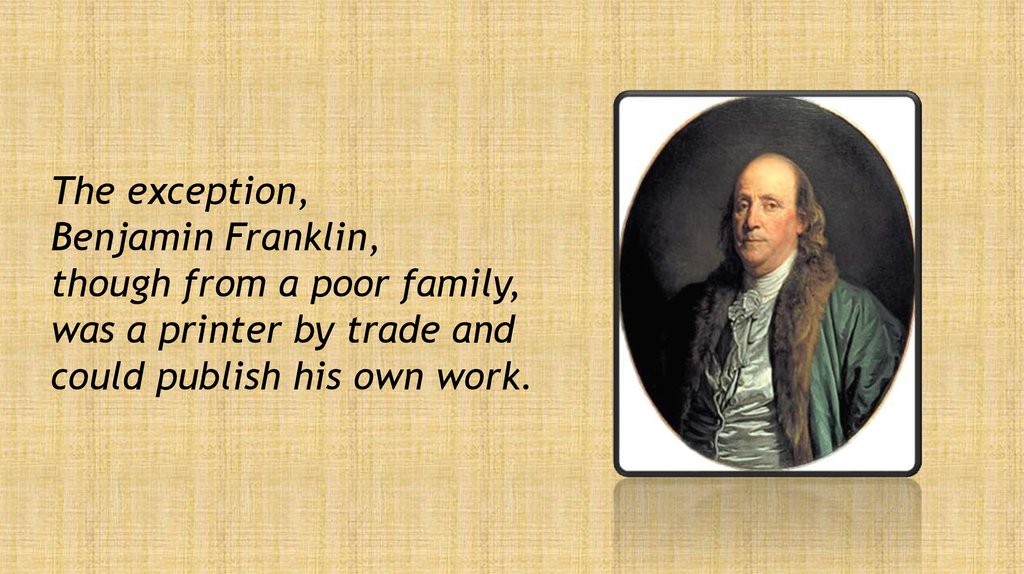
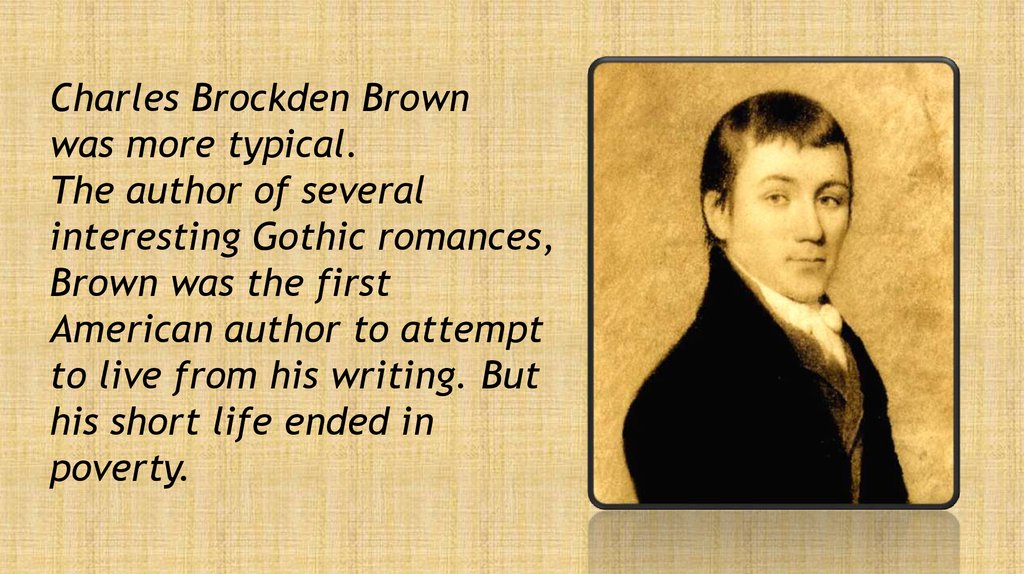
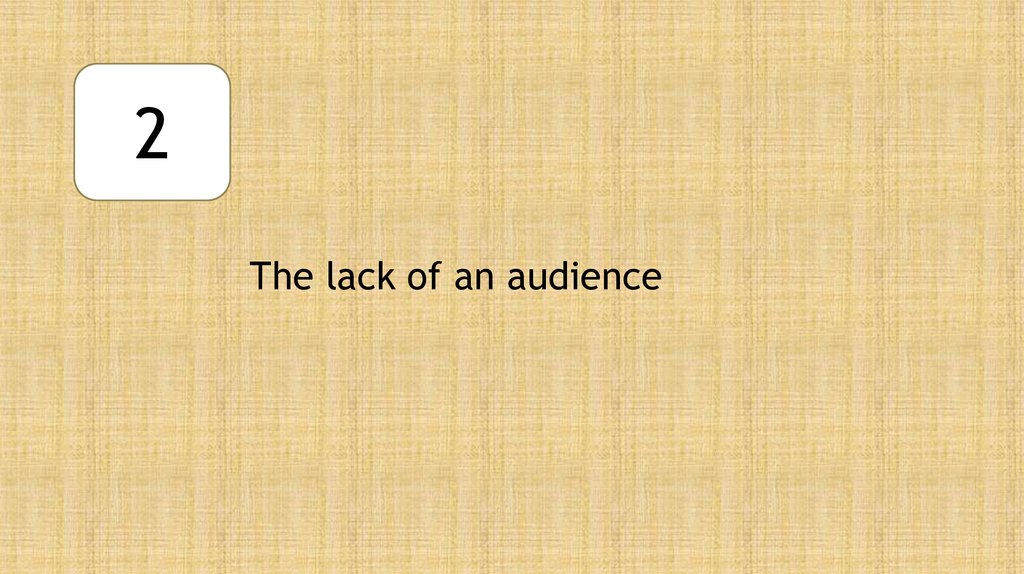
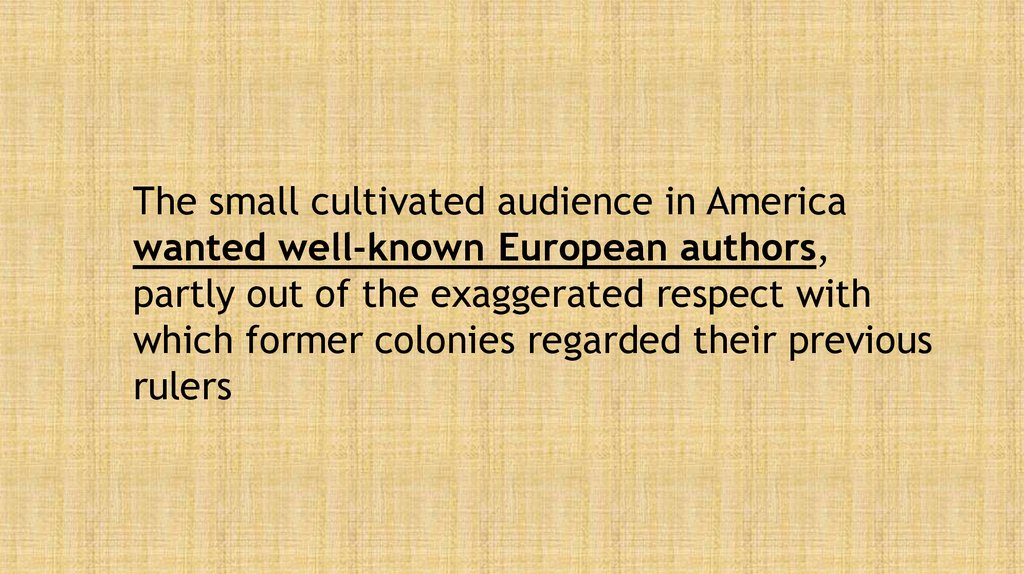
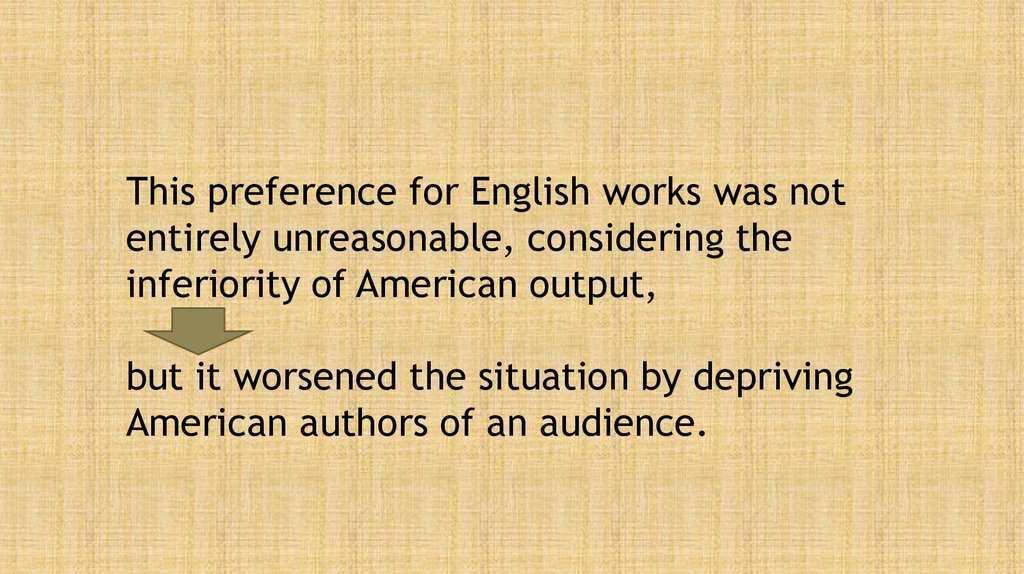
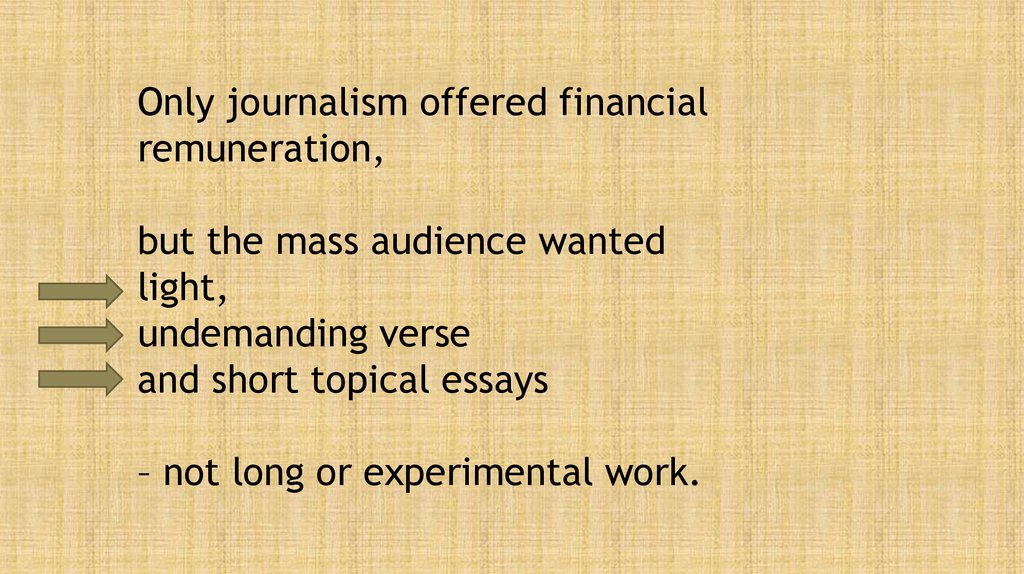
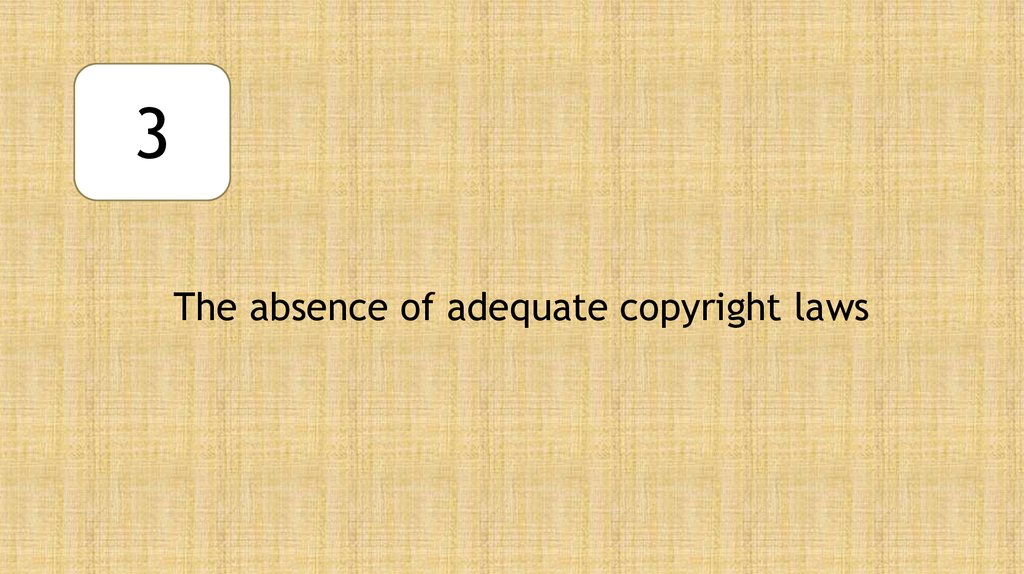
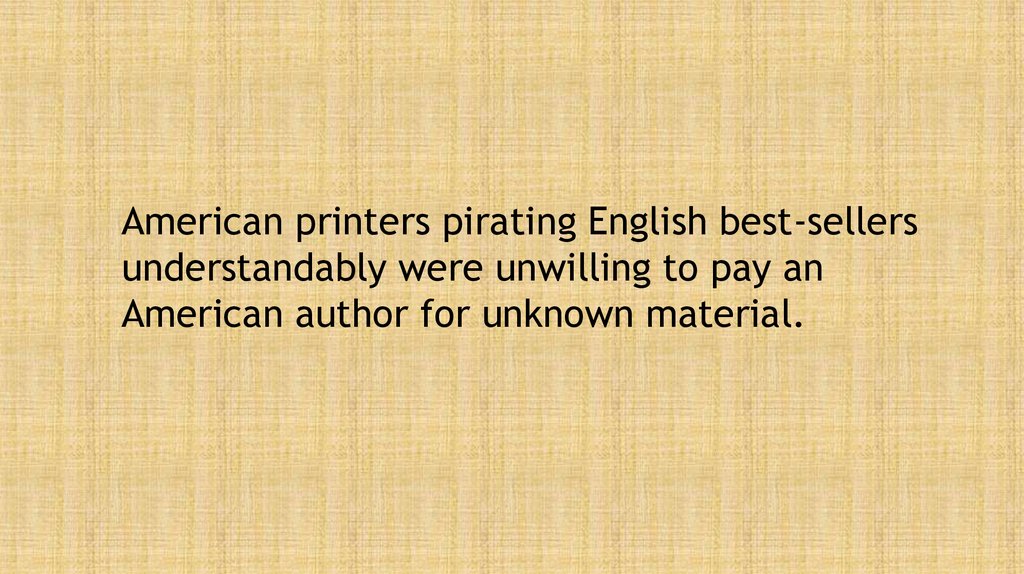
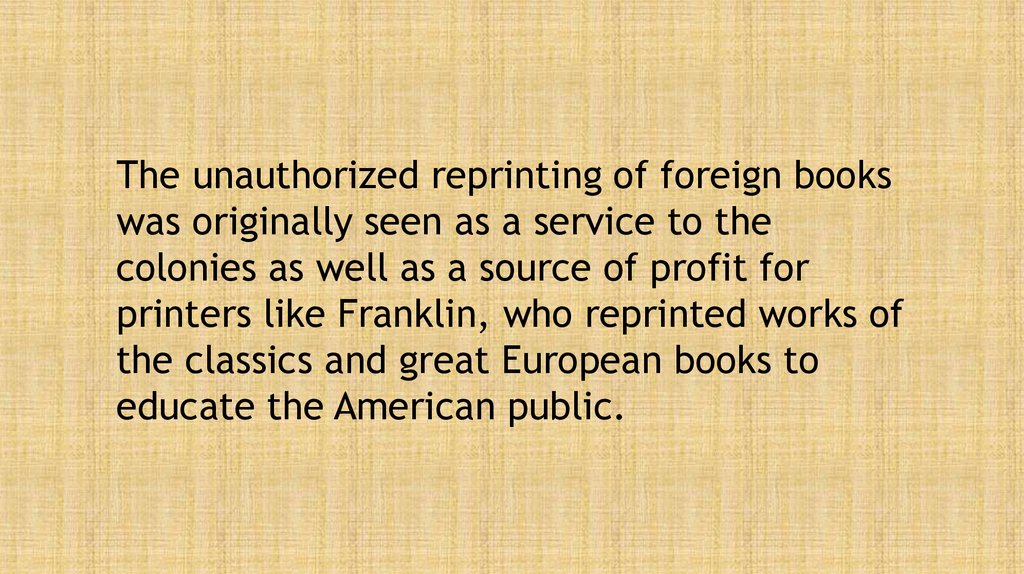
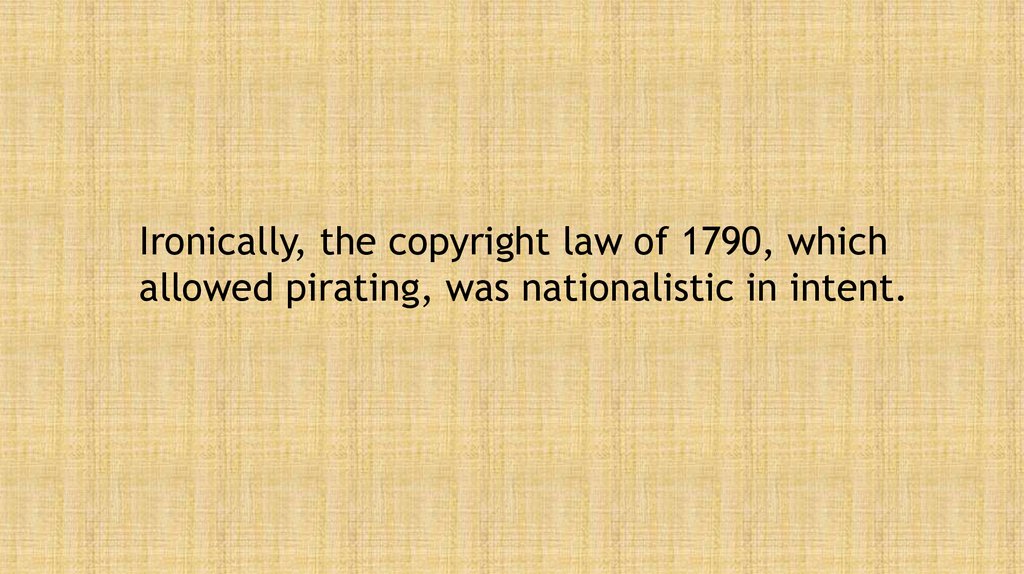
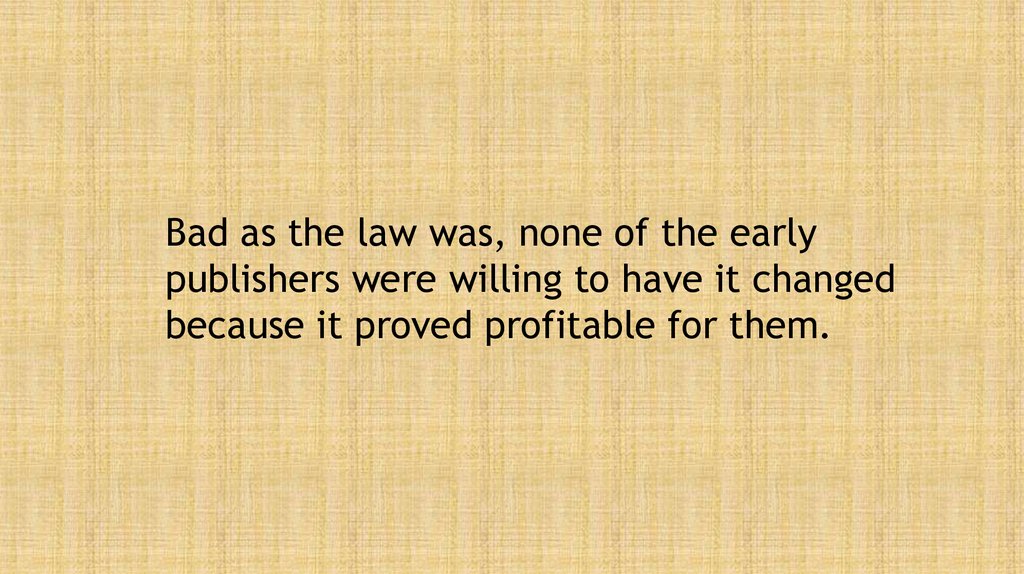
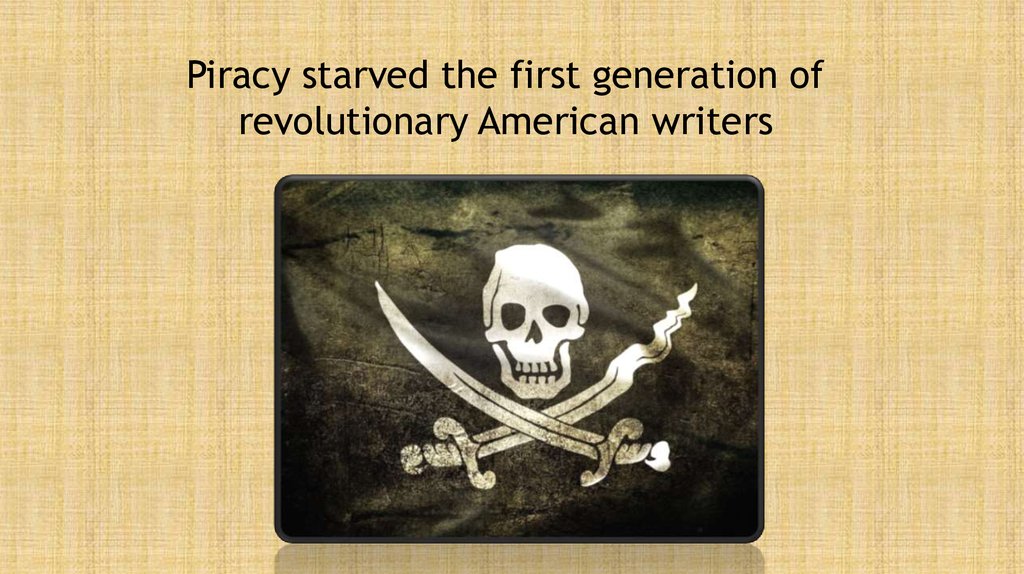
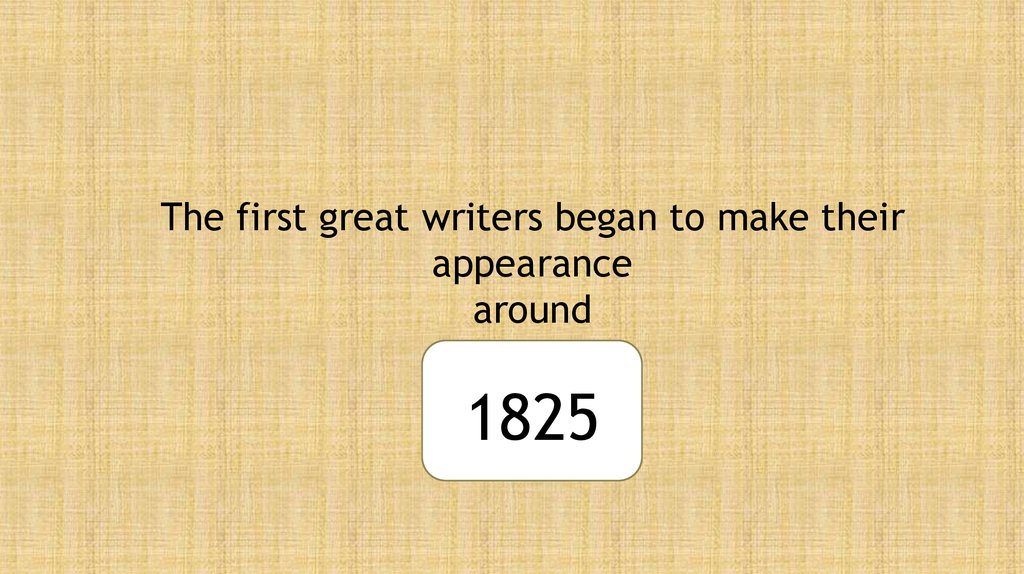
 literature
literature








